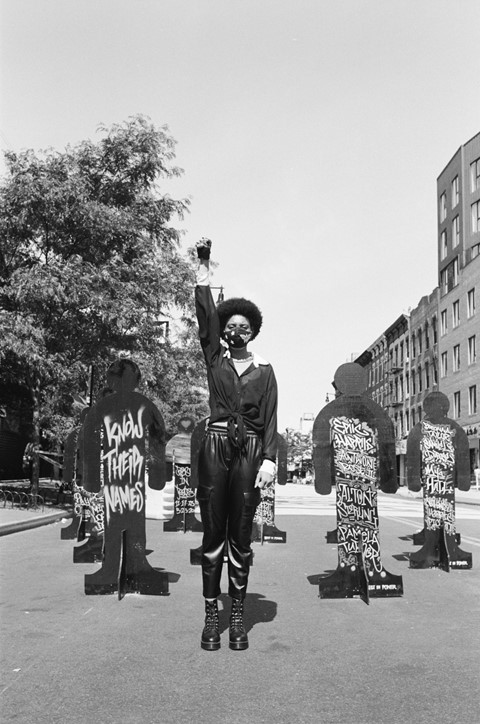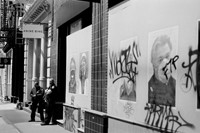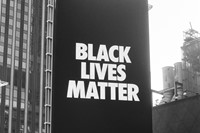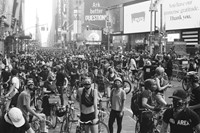FREE FILM: JUNE 2020 is the third iteration of the worthless studios project which distributes 35 millimetre film to photographers, and forms a document of one of this year’s defining months
In June of this year, protests erupted in cities throughout the world following the murder of George Floyd by police officers in Minneapolis. Amid the ongoing anti-racism protests organised by the Black Lives Matter movement – the most recent of which are currently taking place in Kenosha, Wisconsin after Jacob Blake, a 29-year-old Black man, was shot seven times by police officers – artist Neil Hamamoto launched the latest iteration of his project FREE FILM, in which he distributes rolls of 35 millimetre film to photographers who are invited to take pictures and submit them for processing. For FREE FILM: JUNE 2020 – which, like the previous two editions of the project, was supported by Hamamoto’s nonprofit organisation worthless studios, that provides studio space, technical assistance, materials and resources to young artists – photographers across the world documented the Black Lives Matter protests.
“FREE FILM: JUNE 2020 got kicked off as a response to dramatic shifts in the global landscape due to Covid-19 and protests over systemic racial injustice,” explains Hamamoto, writing over email. The photographers were each sent a roll of film and the prompt ‘ADDITION, SUBTRACTION, MULTIPLICATION, DIVISION’, and from there it was up to them to capture what they liked before sending the film back to Hamamoto.
Previous editions of FREE FILM saw Hamamoto and four other artists travel across the USA to distribute the film and meet the photographers in person; in light of the Covid-19 pandemic, the process for FREE FILM: JUNE 2020 had to be different. “[For FREE FILM: USA] We engaged close to 1,600 photographers across 18 US cities – all of whom met us in person at our vintage Airstream-turned-darkroom trailer,” he says. “Today, in the midst of a global pandemic, meeting 200 strangers across 32 countries was just not possible, so we had to shift our outreach and engagement strategy to being more digital and more reliant on existing mail infrastructure ... shout out the USPS!”
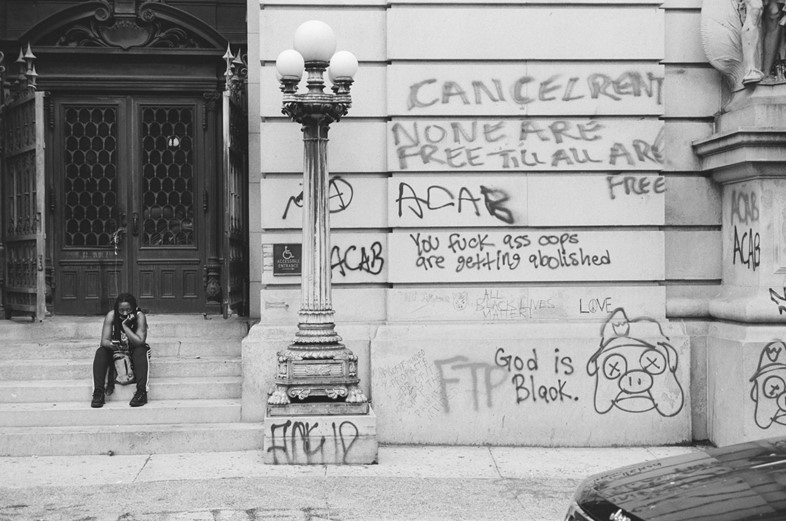
In black and white, the 200 global photographers taking part in FREE FILM: JUNE 2020 captured various perspectives of the Black Lives Matter protests: from portraits of protesters with raised fists and crowds of people filling streets to children holding signs reading ‘Black Lives Matter’ and the street art, flowers and mementos left behind in quieter moments. “The content of the images is completely out of my control and one of the best parts about the project,” says Hamamoto. “Given the prompt phrase, participating photographers have complete freedom to take pictures on whatever that means to them. The project is not about creating a narrative for my own opinions and views by using the lens of many others, but rather to more truly depicting our truth by bringing together multiple perspectives on the same subject.” The resulting collection of photographs forms a unique and powerful document of one of 2020’s defining months, and also echoes the current reality – the fact that systemic racism and police brutality are still rife, and being protested against, as demonstrated by the recent shooting of Blake.
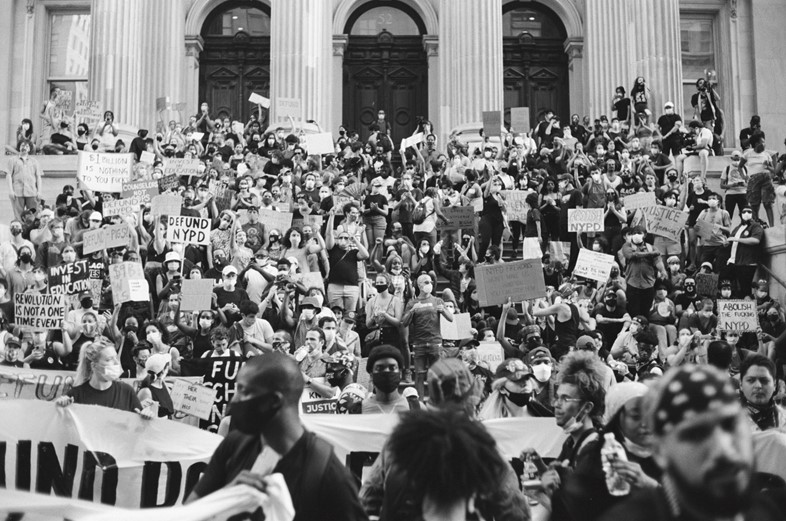
Hamamoto has collaborated with photographer Andre D. Wagner for FREE FILM: JUNE 2020, with plans to make a zine from a number of the images taken for the project. Wagner has worked with Hamamoto on curating photographs for the zine, proceeds from which will be donated to art programmes in New York devoted to working with underserved communities. Through worthless studios, Hamamoto is also creating a book of photographs from FREE FILM: USA, and more recently is producing The Plywood Protection Project, “another public art project supporting artists to bring new life to old plywood materials used to board up windows during Covid-19 and protests”. The success of FREE FILM, through its democratisation of photography and the ways it brings together a wide range of image-makers, means that more iterations are likely to come: “Future renditions of FREE FILM are always tempting and I have no doubt the project will run many times in the future.”
Follow worthless studios on Instagram here, and find out more about FREE FILM here.
